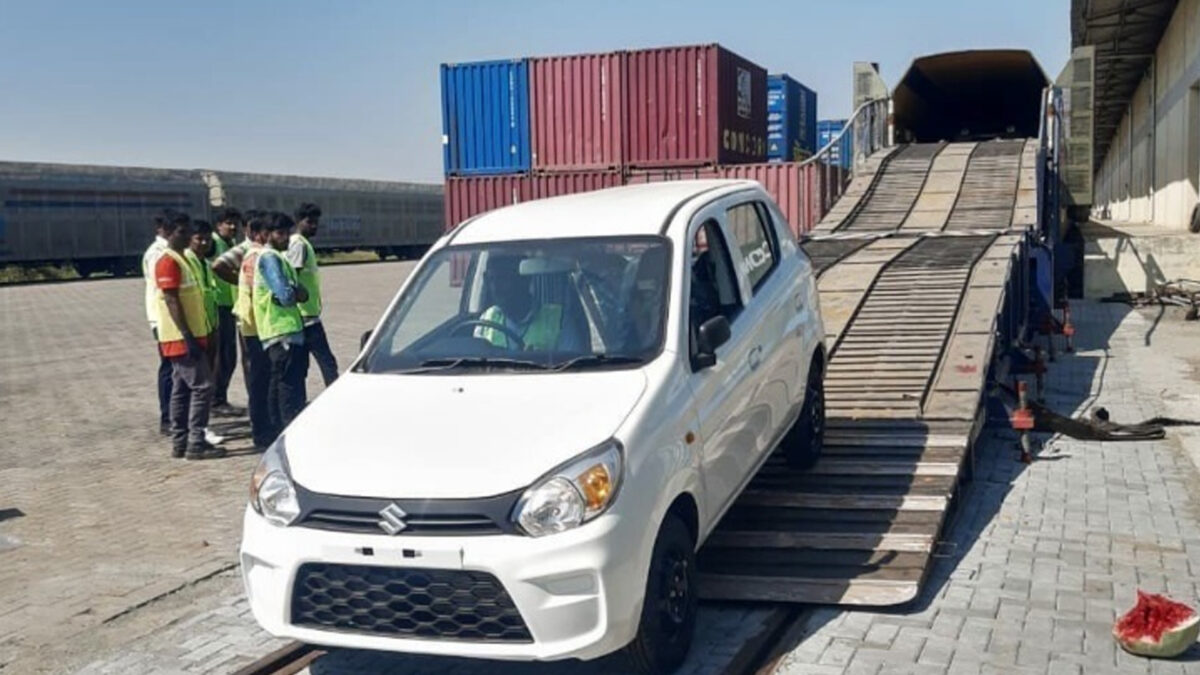Maruti Suzuki India Limited has created history by becoming the country’s first automobile manufacturer to transport vehicles into the Kashmir Valley using Indian Railways.
The company confirmed on Friday, October 3, 2025, that its inaugural shipment of cars arrived at the newly opened Anantnag railway terminal, marking a significant milestone in both India’s automotive logistics and the region’s connectivity.
The first consignment carried more than 100 vehicles, including some of Maruti Suzuki’s most popular models such as the Brezza, Dzire, WagonR, and S-Presso. The train began its journey from the company’s recently inaugurated in-plant railway siding in Manesar, Haryana, and traveled more than 850 kilometers to reach Anantnag.
On its way, the shipment crossed the iconic Chenab Bridge, the world’s highest railway arch bridge, which forms a crucial part of the Udhampur-Srinagar-Baramulla Rail Link (USBRL) project. Commissioned earlier this year, the bridge has been hailed as a feat of engineering and a symbol of improved connectivity for the Kashmir Valley.
Union Minister for Railways, Electronics & Information Technology, and Information and Broadcasting, Ashwini Vaishnaw, underlined the broader significance of the development. “In recent times, apples from the valley have been transported using the Jammu & Kashmir rail link. Now, Maruti Suzuki cars will be transported to Kashmir Valley by rail. The Jammu–Srinagar railway line is a game changer for the people of Jammu & Kashmir,” he said, highlighting the economic and social benefits of the enhanced rail network.
Maruti Suzuki’s Managing Director and CEO, Hisashi Takeuchi, echoed the sentiment, noting that railway logistics have become a central part of the company’s distribution strategy. “We are grateful to the Hon’ble Prime Minister, under whose leadership transformative infrastructure projects have come up across the country. The world’s highest railway arch bridge over Chenab river is one such landmark, enabling seamless and efficient connectivity to Kashmir Valley and allowing Maruti Suzuki to better serve customers in the region,” Takeuchi said.
The move is expected to not only improve the company’s ability to reach customers in Jammu & Kashmir but also boost efficiency and sustainability in its supply chain.
Rail transport has increasingly become a preferred mode for Maruti Suzuki, which has been steadily expanding its use of dedicated railway sidings to reduce dependence on road transport and lower its carbon footprint.
Industry experts point out that this development signals a new phase in the integration of Kashmir with India’s industrial supply chains. With the USBRL project nearing completion, the arrival of rail-based logistics in the Valley is likely to spur trade, enhance employment opportunities, and provide a fillip to local markets.
For Maruti Suzuki, the milestone is also a reflection of its broader ambition to strengthen its logistics backbone as it eyes deeper market penetration in India’s farthest corners. By leveraging India’s rapidly improving infrastructure, the company is not only ensuring faster delivery of vehicles but also reinforcing its position as the country’s largest automaker with a forward-looking logistics strategy.
This first rail consignment to Anantnag, industry analysts suggest, is a harbinger of more to come as India’s rail network continues to evolve into a backbone for commercial transportation across sectors.
Also Read: Battle of AI Behemoths: xAI Sues OpenAI Over ‘Employee Poaching’
